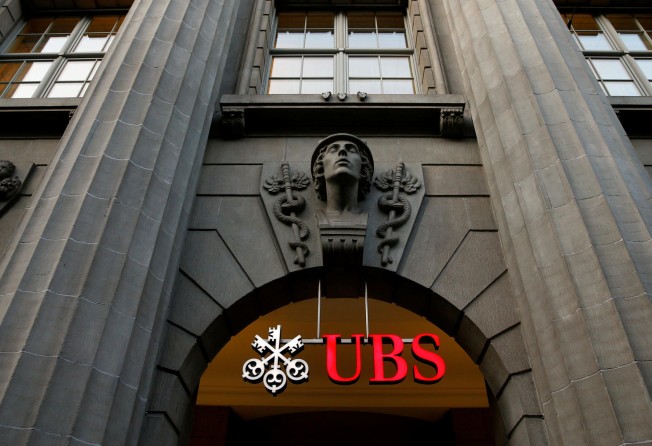Banks turn to research and focused studies in bid to get upper hand in scramble to manage wealth of Asia-Pacific's ultrarich
Report by UBS shows expected growth for external asset managers in the Asia-Pacific region in the coming years

Asia-Pacific is a strategic area for major private banks who are fighting a pitched battle to manage the wealth of the region's ultrarich.
With China and India dominating the rise of the high-net-worth individuals globally in the past five years, these banks are doing their utmost to understand their spending habits, investing strategy and lifestyle choices.
This has resulted in a number of research and focused studies.
Swiss-based banking giant UBS teamed up with London-based WealthBriefing to release a report on the rise of external asset managers (EAM) in Asia. The study was conducted among the wealthy and EAM professionals in Hong Kong and Singapore, two of the most mature markets in Asia ex-Japan.
The main focus of the study was the strong growth expectations of the EAM market share and how more independent wealth advisers are expected to emerge in Asia.
Reto Marx, managing director and regional head of financial intermediaries, Apac, for UBS, estimates about 15 to 20 per cent of the wealth in Switzerland is managed by intermediaries. He says that in Asia it's still in its infancy, but more asset managers are branching out. "Asia for us is an interesting place and we are starting to look beyond Singapore and Hong Kong too," Marx says.
Wendy Spires, head of research at WealthBriefing, who wrote the report, says the EAM market is fragmented in Hong Kong. Spires says that it was interesting to compare regulation in Switzerland and Asia.
"What I found fascinating is comparing the Swiss set-up with that of Asia and how the regulation compares." EAMs are boutique firms composed of private bankers, lawyers, trust officers and others advising high-net-worth and ultra-high-net-worth clients on the management and investment of funds, bank accounts and other parts of their portfolios. EAMs are also known as financial intermediaries, independent asset/wealth managers and external investment advisers; multifamily offices can also often be classified as EAMs.
Spires says she found the differences in the regulatory side between Europe and Asia to be quite profound.
"It just feels to me that here it is more facilitated; [in Asia] lessons have been learned, that's my sense," Spires says. "All the regulatory tightening in the UK and Switzerland [has] been transposed quite well here. They are in a good place, it's been set up very well in Hong Kong and Singapore."
Explaining the rationale for doing the survey, Marx says that WealthBriefing had done this survey before in Switzerland and Europe. UBS wanted to cover the Asia-Pacific market, wanted to estimate the size of the market and help to gauge the potential gap between Europe and Asia. "We also wanted to create a clarity that would help us to move forward," he says. He adds that the regulatory network in Switzerland is less prescriptive, it being mostly a self-regulatory environment, it's a bit more formalised here in Asia.
"In terms of product distribution however, Europe as compared to Asia has been slightly ahead in developing and implementing cross-border distribution rules, meaning and who can sell what products to whom and in which countries," Marx says.
Participants in the study, who were based mainly in Singapore and Hong Kong, varied quite widely in their estimates of the share of private wealth managed by EAMs in their centre. More than two-thirds believe that EAMs manage up to 10 per cent of the private wealth in their jurisdiction, while over a third think it's less than 5 per cent. Ninety per cent of participants believe the market share of private wealth managed by EAMs in their location will increase in the next three to five years, while 10 per cent see EAM assets remaining stable.
Eight in ten respondents believe more EAMs will spring up in the hope of joining in their success, while none foresee consolidation or any closures.
Nine in 10 respondents judge their location as a politically and economically stable centre for global financial assets that is well positioned to compete on the global stage. Not surprisingly, given the Hong Kong/Singapore focus, over half of participants lean towards serving international clients, although only 10 per cent cater solely to this market. Four in 10 of the EAMs have an equal split of domestic and international clients on their books, while a small contingent work only with international ones.
However, cross-border regulations are seen as a big challenge for EAMs in Asia as they try to attract international business, with 60 per cent seeing a negative impact and a quarter believing this to be serious.
Nine in 10 respondents offer discretionary portfolio management, with slightly fewer offering advisory investment services (in Asia-Pacific, the advisory mandate is the more common model). Wealth planning is offered by little more than a third of participants, and brokerage and execution by slightly less than a third, the report says.